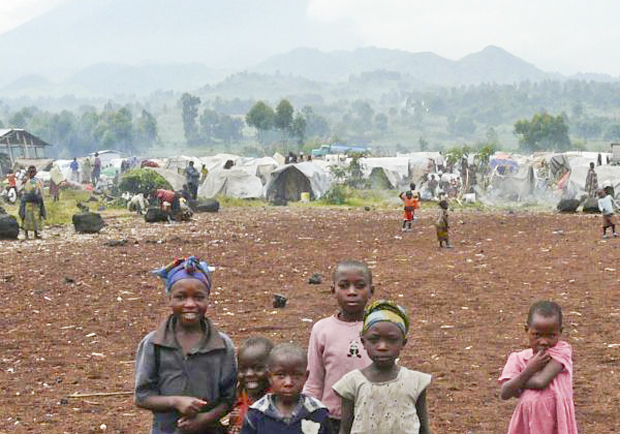The M23 Rebel group in eastern Congo today said it would end its battle with the Democratic Republic of Congo (DRC), according to media reports.
After 20 months of fighting, rebel leader Bertrand Bisimwa said his group would give up armed conflict and seek a political settlement. Rebels, many of them ethnic Tutsi, originally launched attacks in April 2012, after efforts to integrate them into the DRC's army failed.
Wire service reports said:
The M23 made its announcement hours after government forces drove the rebels out of Tshanzu and Runyoni before dawn, following a two-week offensive that cornered the insurgents in heavily wooded hills along the border with Uganda and Rwanda. "The chief of staff and the commanders of all major units are requested to prepare troops for disarmament, demobilization and reintegration on terms to be agreed with the government of Congo," M23 leader Bertrand Bisimwa said in a statement. The United States welcomed the declaration as a "significant positive step" for eastern Congo, a region beset for more than 15 years by conflict fueled by competition for gold, copper and cobalt as well as cross-border ethnic tensions.
Since the spring of 2012, more than 13 million people in eastern Congo have been on alert due to the regional conflict that on occasion spilled across the border with Rwanda and Uganda.
In November 2012, after rebels took control of Goma, a major population center and hub for Christian relief work, Christian leaders had to increase security for their relief and development projects. There are about 50 U.S. Protestant missions agencies active in the DRC. (Rebels left Goma after a short occupation.)
"Attempts by the Congolese armed forces and the UN to restore state authority in the Eastern Democratic Republic of Congo are welcomed, as the M23 being weakened should mean increased humanitarian access to civilians in need," said Frances Charles, advocacy manager for World Vision in the DRC, in an exclusive statement to CT.
"However, the M23 is one of many other armed rebel groups ravaging the region and humanitarian fall outs from the fighting must be considered, because civilians are continually getting caught in the crossfire. World Vision calls on all parties to disarm and demobilize to avoid further civilian casualties."
Earlier this year, World Relief, the humanitarian arm of the National Association of Evangelicals, helped local Congolese Christians form peace committees to reduce violence and increase security at the village level. CT journalist April Burbank reported on these committees:
"We've wrapped everything together under the theme of peace," said World Relief President Stephen Bauman. "We're still doing microfinance, we're still doing food security, we're still doing health, but we now have 22 peace committees. We're piloting a peace-building initiative through local churches and recognizing that unless the tribes come together, unless churches come together, all these other activities can sometimes be jeopardized." The committees try to keep conflicts like family disputes, domestic conflicts and crimes from escalating into large-scale divisions that have boiled for years along tribal and ethnic lines. "It's a failed state, to be honest — and a lot of systems, the judicial system being one of them, are not what they really should be," said Rhona Murungi, program manager of World Relief's East and Central Africa programs.
"You could say that for a lot of African countries, but Congo is an extreme in this case." Murungi said World Relief came up with the idea for the program after hearing from Congolese people for years that they could fully benefit from World Relief's full range of programs "if only we had peace."
As the result of two earlier regional wars, an estimated 5.4 million people have died and 2 million were displaced.
CT published a cover story on the Congo conflict, Hope in the Heart of Darkness, in 2006.









